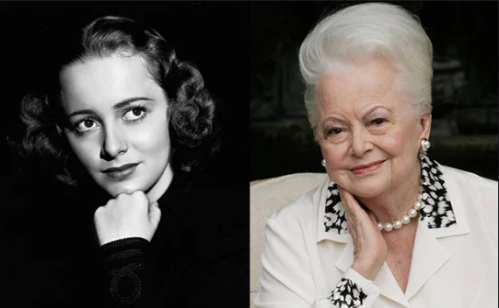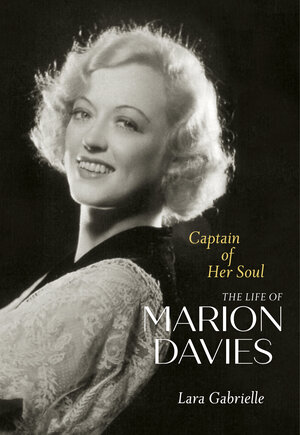
This afternoon, a decision came in for the case of Olivia de Havilland vs. FX, which I have been following closely here. The appeals court has decided to “reverse and remand” the case to lower court, overturning the decision of lower court judge Holly Kendig and giving the case to Feud.
A statement by Ryan Murphy says “The reversal is a victory for the creative community, and the First Amendment. Today’s victory gives all creators the breathing room necessary to continue to tell important historical stories inspired by true events. Most of all, it’s a great day for artistic expression and a reminder of how precious our freedom remains.”
As I have made clear in other posts, the day is great only for docudramas that want to tell half-truths and outright lies, planting seeds of gossip and rumor in viewers’ minds that grow to create a warped lens through which they view history. Ryan Murphy doesn’t have a particular interest in keeping those seeds of gossip and rumor at bay–he profits from this era where no one really knows where the truth lies. Not only do these half-truths and outright lies make Olivia de Havilland’s life difficult, but also mine. As a film writer and historian, I and others like me have to be the ones to untie all the knots that Feud has created.

After the decision was released, I told myself that I would read the opinion with an open mind. Perhaps the justices would say something that I hadn’t thought of. But as soon as I opened and read it, it was clear to me that this case had been decided on erroneous legal precedent. The Guglielmi case, to which the author of the opinion, Justice Anne Egerton, refers frequently, is only applicable to dead people. California Civil Code 3344.1 exempts docudramas and dramatic interpretations from right of publicity claims if the person is dead, but the statute from which it branches, California Civil Code 3344, does not exempt them from right of publicity claims if the person is alive. If they had used a deceased celebrity, they would be protected under the Guglielmi decision. Not so with a living person.

From the decision. This is not correct. De Havilland was within her legal right to challenge a historically inaccurate portrayal. If it had been accurate, she wouldn’t have been able to touch it. But it wasn’t, so she can and she did.
The decision also references Sarver vs. Chartier, also known as the “Hurt Locker” case. But once again, this doesn’t have anything to do with the de Havilland case at hand. In this particular instance, Sarver agreed to let people film him and the resulting character in the movie was a composite, so he had no case and it was thrown out of court. De Havilland did not agree, and the character was not a composite. I believe that the appeals court may be misconstruing “raw materials of life” in Sarver to mean something that it doesn’t.

In reference to this part of the decision, in addition to the comments about Sinatra’s drinking not being defamatory or offensive, I think the court is giving too much credit to the average, reasonable viewer of Feud. In a previous post, I discussed my talks on Marion Davies, and how I frequently have to spend far more time debunking myths propagated by The Cat’s Meow than those myths are worth. Far too many people watch docudramas and believe they’re telling the truth–then, no matter how many facts are provided to disprove them, they keep believing the more exciting story. This ruling allows producers of docudramas to exploit that tendency, rewrite history, and put the onus on the historians to correct it.
We do know that there had been a draft opinion before the oral arguments, and it looks as though the case will proceed to a higher court. A statement from Suzelle Smith, de Havilland’s attorney, reads in part: “Miss de Havilland, her many fans all over the world, and actors in similar situations are rightly disappointed in this Opinion. The Opinion does not properly balance the First Amendment with other important rights. This case appears to be destined for a higher court, and we will be preparing the appropriate petition for such review.”
#odehvfx



























_03.jpg)


Excellent
Although my circle is smaller when it comes to discussing fact vs. fiction in our entertainment, what I have observed generally reinforces your point that “the court is giving too much credit to the average, reasonable viewer….” An example from politics and entertainment, if I may, from the not-too-distant past would be Tina Fey’s parody of then VP candidate Sarah Palin. Soon afterward many people were convinced that Palin actually said something that Fey had only put in her parody’s mouth. If people were quick to believe something to be true that was intended to be of a humorous nature, how much more would they accept something to be true that is presented in a more serious manner?
Thank you, yes, exactly. How many people believe Sarah Palin actually said the words “I can see Russia from my house?” It was great and funny, and parody is something completely legally different, but people really do believe what they see, and have a diminished capacity in this day and age to think critically about fact vs. fantasy…and it’s always more fun to believe the exciting story anyway. So they do. It muddles history and just confuses us even more.
Of course, SNL is a clearly recognizable performance by well lnown comedians on a well known farcical programme. In short, the audience is in on the premise. The same cannot be said of The Feud. This is a reprehensible ruling, one that makes a farce of representational rights and privileges. Truth has been left bound and gagged in the cellar, and just for the sake of entertainment.
Fortunately the “entertainment” figure biography I wrote about – costume designer Adrian – is not someone in the public consciousness. As Joan Crawford’s earlier designer, however, he could have been portrayed as a real stereotype with any invented characteristics suitable for the plot.Real persons rarely come out whole and themselves in Movies and TV, even if the intent is leaning favorable.It’s a shame Miss. de Havilland had to witness herself as someone else with her name.
Yeah, it’s really a shame, and right of publicity exists for this purpose.
As disappointing as this wretched decision is, I applaud…with a standing ovation, Olivia’s gumption and integrity and good graces to stand up for herself, her rights, her beliefs. She fought City Hall. She might’ve lost, but she FOUGHT! Thanks for your reporting Lara, and breaking it all down for us. xoxo
Yes, I agree. It’s not over yet–it looks like they’re preparing something to go to the CA Supreme Court, where a decision will have far more leverage and future significance. Thanks for your nice words, I’ll keep going as long as this case goes!